If you are already suffering from diabetes, and have now been diagnosed with cancer, you will need a special diet plan that helps you manage both diseases.
While your diet will not cure cancer, it will help you consume sufficient nutrition to withstand your cancer treatment, and also reduce some of the side effects you may be facing.
In this article, Onco.com’s Senior Dietician Dr Krishna Priya helps us understand the requirements of a diet for cancer patients with diabetes.
What foods should diabetic patients with cancer avoid?
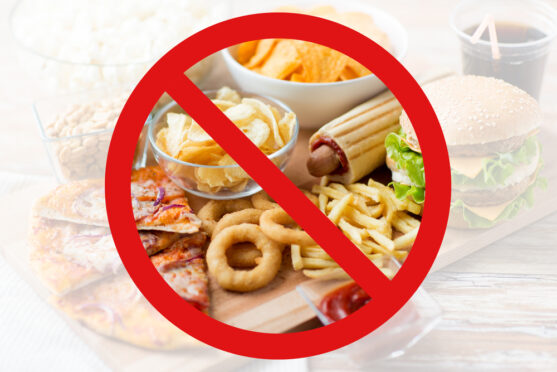
Of all the food groups, carbohydrates have the most effect on blood sugar levels. This is because carbohydrates get broken down into glucose and then absorbed into our bloodstream.
There are three types of carbohydrates like starches, sugar and fibre. Of these, sugary and starchy carbohydrates raise our blood sugar levels. Fibre does not raise our blood sugar levels.
Maintaining a low to moderate carbohydrate diet (especially starchy and sugary carbohydrates) can prevent spikes in your blood sugar and reduce risk of diabetes-related complications.
|
Foods to avoid |
|
Sugary drinks (sugar in tea and coffee, cool drinks) Aerated drinks (soda, soft drinks) Fried foods like chips, fries Bakery products like cakes, muffins Packaged/processed foods like frozen meals, biscuits |
Trans fats are also to be avoided in the diet. Completely avoid foods that have the word ‘partially hydrogenated’ on their packaging.
Refined flour (maida) causes spikes in blood sugar level and should be avoided even in home cooked foods.
Cancer + Diabetes Diet
8 – 18 % of cancer patients have diabetes. Very often, once cancer has been diagnosed in these patients, diabetes management gets de-prioritised. However, managing blood sugar levels is as important as managing your cancer nutrition.
Some cancer treatments and medications may also impact your blood sugar levels, making it important for regular monitoring of blood sugar during your cancer treatment.
A good diet plan for such patients will include good amounts of proteins, vegetables, whole grains and cereals that are low in fats and calories.
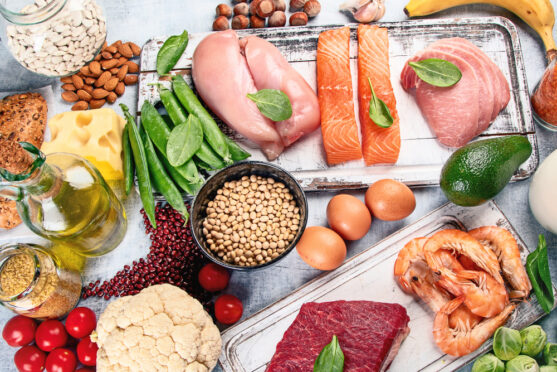
Choose a high protein diet
What about fibre?
Dietary fibre is classified into two types: soluble and insoluble.
Soluble fibre is found in foods like oats, peas, apples, beans, citrus fruits, carrot broccoli etc. These foods help in lowering blood sugar level.
Insoluble fibre helps the easy passage of stool through the digestive system, preventing constipation. Whole wheat flour, nuts, vegetables like cauliflower, potato etc.
Your total fibre intake should be in the range of 25 – 30 gm per day.
However, some diabetic patients may find that fibre rich foods aggravate certain symptoms like loose motions. Similarly, those suffering from stomach cancer may not benefit from fibre rich foods. A modified fibre diet will need to be customised to your requirements. You can call us on 79965 79965 if you require a customised diet plan.
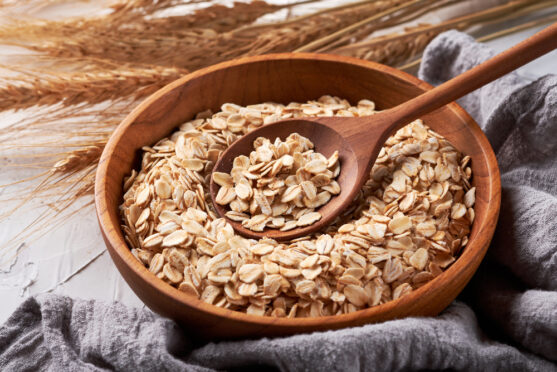
Oats is a source of soluble fibre
Which foods are good for cancer patients with diabetes?
It’s helpful to understand the ‘glycemic index’ of any food. This will help you decide if a particular food is good for you or not.
Glycemic index is the value assigned to a food based on how slowly or how quickly that food can increase your blood sugar level. Foods with a low glycemic index have scores below 55. These foods contain carbs that take longer to break down, and raise the blood sugar levels very slowly.
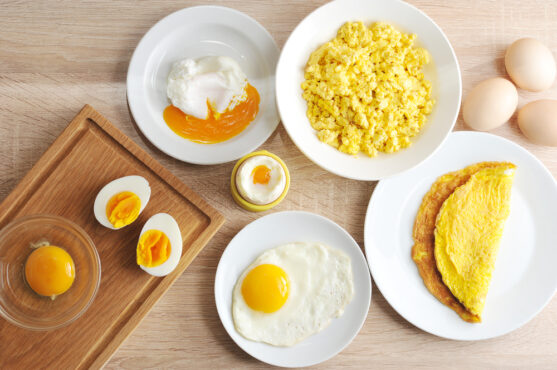
Include eggs in your diet
Eggs are a good food for cancer patients with diabetes because it is high in proteins (which is important during cancer treatment) and it has a low glycemic index. It also contains 9 amino acids that our body cannot produce. It is also a good source of potassium which is good for hair regrowth after chemotherapy.
However, eggs are also high in cholesterol. So for diabetic patients, egg consumption needs to be limited to three times a week. (Egg whites can be consumed on a daily basis, but the consumption of egg yolks can be restricted to thrice a week.)
Milk and other dairy products can help you maintain a balanced diet during diabetes. Milk adds to your carbohydrate count. It’s best to avoid consumption of milk at bedtime since carbohydrate intake very close to bedtime may not be a great idea for diabetic patients.

Include buttermilk in your diet
The best dairy products to include in a cancer+diabetes diet are yogurt, curd and buttermilk. Milk can be consumed in the morning or during active hours.
When selecting the fruits you want to include in your diet. Consider their glycemic index. Fruits are immensely nutritious but most fruits also contain sugar.
Fruits like apple, avocados, cherries, grapes, kiwi fruits, oranges, plums, and moderately ripe bananas have a low glycemic index and can be safely consumed in this diet.
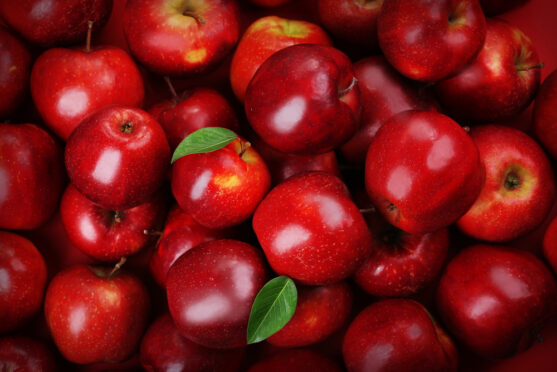
Apples are safe for most cancer patients
Fruits like papayas and pineapples have a medium glycemic index. Fruits like watermelon have a high glycemic index.
Fruits with lower glycemic index can be eaten in larger quantities than other fruits. However, if the patient is severely diabetic, then even fruits with a lower glycemic index are best avoided.
Selecting non-vegetarian foods to include in your diet
Lean meats are low in saturated and trans fats and are extremely good for cancer patients.
Chicken without skin, turkey, fish and other sea foods can be consumed on a daily basis to meet protein requirements during cancer.
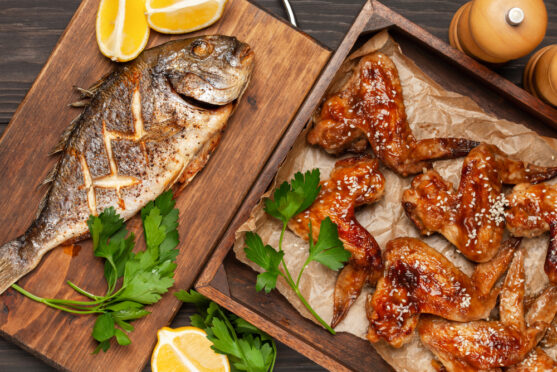
Opt for lean meats
Smaller portions of medium fat meats like ground lamb, pork etc can be consumed occasionally.
High fat and processed meats like sausages need to be completely avoided.
How much meat can I consume daily?
The answer to this differs from person to person and is dependent on factors like age, body weight, cancer type, activity level etc. Our dietician can give you your daily consumption amounts after collecting these details from you.
It’s best to completely avoid red meat and stick to white meats like chicken and fish.
How often should I eat?
For diabetic patients small, frequent meals are best. Stick to a schedule so that you are consuming the same quantity of food at the same time daily. This avoids hypoglycemia.
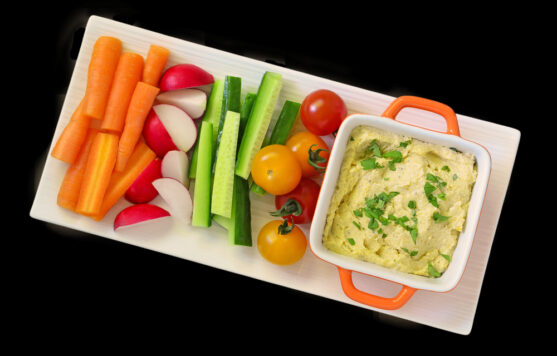
Healthy snacks between meals
Avoid skipping meals. Do not go for more than 5 hours without a meal. Eat 4 to 6 smaller meals, in place of three big meals. This will manage your blood sugar levels throughout the day.
A gap of 3 – 5 hours between meals can be maintained to ensure hunger and appetite.
Do not delay your breakfast! Have it within one and half hours of waking up. Have healthy snacks between meals.
Can I have tea and coffee?
Both tea and coffee contain caffeine. This substance reduces your body’s ability to use insulin.
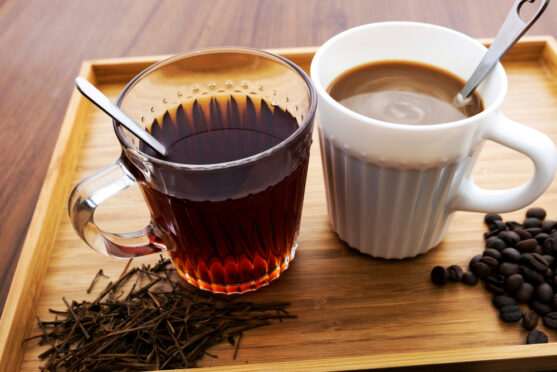
If you have type 2 diabetes, your body is already unable to use insulin to optimum levels. After meals, your blood sugar tends to rise above the normal range. Caffeine makes it even more difficult to bring your blood sugar levels down to the normal range.
Around 200 milligrams of caffeine per day is considered safe for most people. This would be about 240 ml of coffee. You can opt for decaffeinated coffee (decaf) as it will have lower levels of caffeine.
Many like to sweeten their tea and coffee with brown sugar, honey, jaggery and other sweeteners. All of these substances have the same effect as regular sugar. It’s better to take unsweetened tea and coffee.
Should I cut out carbs completely?
There is no evidence that cutting carbohydrates completely from your diet will help with cancer or diabetes.
Instead of cutting out a food group completely, you can restrict it based on accepted dietary guidelines. 45 – 60 % of your daily calories can be from carbohydrates, even if you have diabetes.
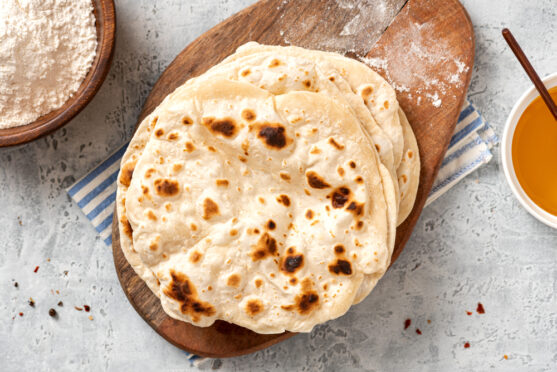
Continue carbs in moderation
Some cancer treatments like chemotherapy can cause nausea and vomiting, which could affect your food intake, leading to low blood sugar levels. It’s important to take anti-nausea medication to ensure proper food intake.
I’m following a proper diet, why is my blood sugar still high?
During cancer treatment, your blood sugar may rise for reasons other than your diet.
Stress, cancer medications like steriors etc can lead to spikes.
Here’s what you can do:
- Continue to follow your diet.
- Drink plenty of water.
- Take more frequent, smaller meals throughout the day.
- Monitor your carbohydrate intake. Speak to a cancer nutritionist to figure out the right amount of carbs for you.
- Monitor your sugar levels and if you still cannot figure out why they are spiking, then speak to your doctor without delay.

